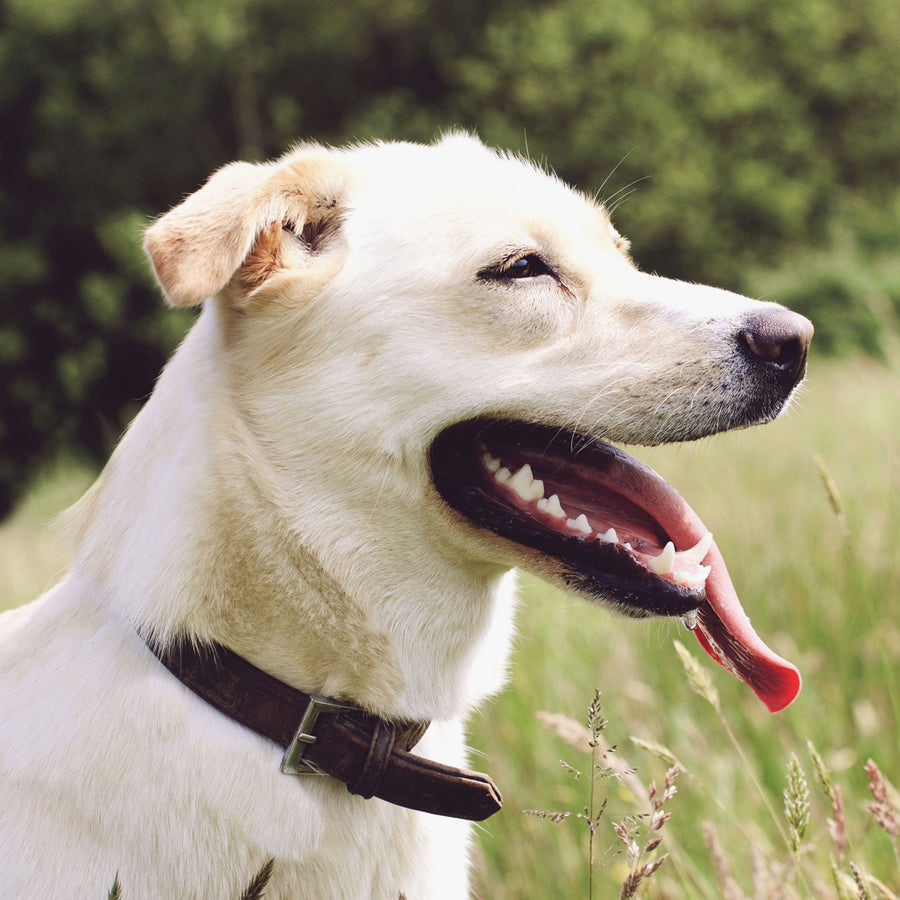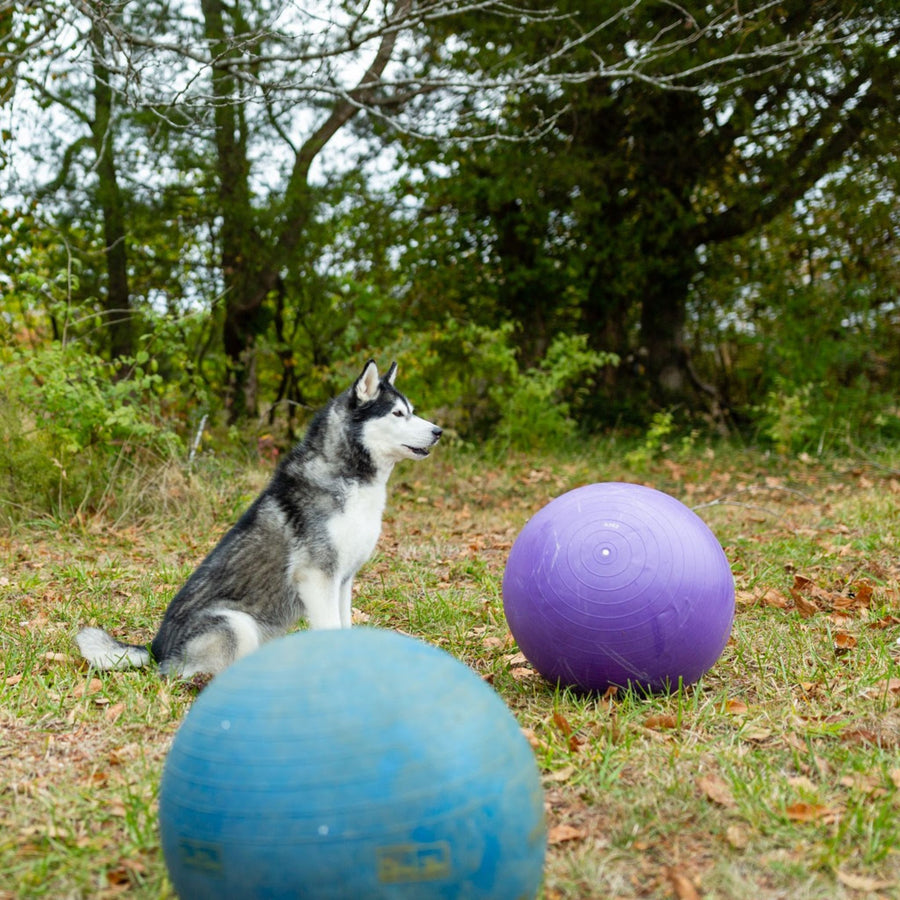Not All Dog Sports Are For All Dogs
We are extremely fortunate to have a plethora of dog sports to choose from when we are looking for a game to play with our dogs. But not all dog sports are suitable for all dogs. Let's discuss how you can better decide which dog sport would be a better fit for your own individual dog.
"Here we go again...what are you talking about NOW, Santos?"
Dog sports are a wonderful thing. Truly. They allow dogs to play fun games with their owners, perfecting a variety of different skills and oftentimes tap into various instincts and even breed-specific traits.
"So, what is the problem?!"
Every dog sport has different physical and mental requirements, and these may simply be out-of-reach for a given dog. Or, playing a given dog sport may actually cause unintended fallout for a given dog.
"WHAT?!"
Let's take lure coursing for example. This is a super fun activity that is was initially designed to allow Greyhounds and other sighthounds to do what they were bred to do: run over long distances chasing a quarry. This activity was then opened up to all breeds of dogs with the CAT tests offered through AKC. Now your dog did not have to be a sighthound in order to enjoy chasing the plastic bunny.
"That all sounds like GOOD things!"
It is wonderful that more dogs get to play this game! My Doberman LOVES chasing the plastic bunny and we are entered in a CAT test this weekend in an attempt to earn his CAX title. I'm certain he will have a wonderful time.
However, the high-octane nature of this activity can be detrimental to some dogs. In that it can cause the dog to be emotionally affected in such a way where they are so overly excited and aroused that they begin to make poor decisions in other contexts. Particularly for dogs who have a tendency to stress-stack, being in this heightened state of arousal could result in them practicing other unwanted behaviors such as barking and lunging at other dogs, people and so on. As the saying goes, practice makes perfect. So, if you were diligently working on not having your dog practice those behaviors, participating in an activity that causes them to practice those problematic behavior more would not be a good idea.
"...So are you saying lure coursing is bad?!"
Not at all! Lure coursing is awesome! My dog loves it. Many dogs love it. The ability to see your dog truly stretch out and run full-tilt is like nothing else.
My only point is we have to discerning about the types of dog sports we sign our own individual dog up for. We need to see if there are any unintended consequences, both physically and mentally, in having our dog play this certain game.
"But how do I know if a certain dog sport would be a poor fit for my own dog?"
That is a great question, and you have a couple things you can do to find this out.:
VOLUNTEER AT A TRIAL
When you are trying to determine if a certain dog sport would be a good fit for your dog, the best thing to do is to have an understanding of what that dog sport actually entails. To do this, volunteer at an real trial. Watch everything that goes on, not just the activity itself, and ask yourself these questions:
- How are the dogs handling themselves in the parking lot or crating areas?
- Would your dog do well in this location or would they be stressed out?
- How do the dogs look when they are performing?
- What are the physical requirements?
- Would your dog physically be able to do what these dogs are doing?
- Are they at the ideal weight for this activity or at the proper fitness level?
- Would you have to do some prep work first to get them ready for training in this activity?
- What do the other handlers look like?
- Are they stressed?
- Are they having a good time?
- Can you picture yourself doing this?
TRAIN FOR ACTIVITY
If after witnessing this trial in-person, you think it would be a good fit for your dog, begin training for it! Remember that you can always play the game at home if that would better suit you and your dog. You are not required to trial! But, if you are noticing any physical or mental fallout from training this activity, you should probably look into playing a different game altogether with your dog.
However, if you and your dog are rocking it, then you can move onto the next step of practicing at a mock trial or a similar event.
MOCK TRIAL
A mock trial, match, or fun group practice session can not only be a great way to test your training and preparedness, it can also assess if your dog will do well at an actual trial. Assess them both at the event itself and afterwards. Are they sore? Are they emotionally strained? Or, are they feeling completely fine and mentally satisfied?
TRY TRIALING
If all of that goes well, start to formally trial, always evaluating how it is going. I have a colleague who tried lure coursing with her dog. Her dog LOVED it, but was so beside herself afterwards, and the day after and the day after that, she determined lure coursing was not a good option for them. Doesn't mean that lure coursing is bad. It simply means it was not a good fit for them.
Also, recognize that things can change over time. Even your dog's physical health will change as they age. Your dog may very well develop arthritis or other physical ailments that will make it painful for them to continue doing high-octane and physically demanding dog sports. In that case, you would want to make an adjustment to either enter a lower level of competition or try a new and different dog sport altogether.
IN CONCLUSION
Keep an open mind about what types of dog sports you play with your dog. Remember that we are the ones making these decisions on behalf of our dogs. A great saying that has gone around the dog sport world is, "Your dog doesn't sign the entry fee checks".
In other words, we need to constantly assess what will be good for our dogs, and keep in mind this can change over time. Additionally, trialing may not be a good option, but playing the game at home very well may. O, it could be that the activity as a whole would be more detrimental than beneficial to our own dog.
There are lots of options out there. Don't feel as though you have to do all them! Find what works best for you and your dog, revel in the journey and most importantly have fun with your pup!
Dianna L. Santos has been professionally training dogs since 2011. Having specialized in working with fearful, reactive and aggressive dogs, Dianna's main goal is to help dogs learn how to be successful in a human world. She does this by outlining ways dog owners can better understand their dogs while designing fun and effective training programs and games both ends of the leash will enjoy. Dianna is also particularly passionate about Scent Work is on a mission to promote the idea that ALL dogs should be playing the sniffing game!

